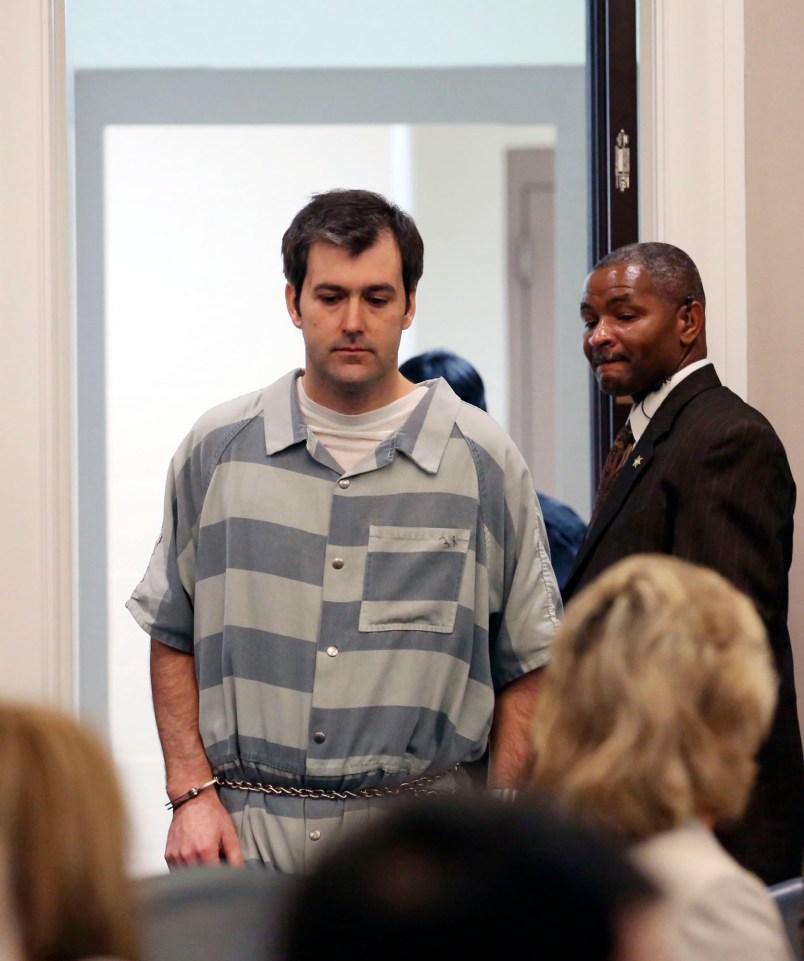CHARLESTON, S.C. (AP) — A judge denied bail Monday for a white former South Carolina police officer charged with murder in the shooting death of a black motorist, saying his release would “constitute an unreasonable danger to the community.”
In a brief order, Circuit Judge Clifton Newman denied bond for Michael Slager.
“After careful consideration of all the evidence presented and the nature and the circumstances of the offense, the court finds that the release of (the) defendant would constitute an unreasonable danger to the community and the request for release on bond should be denied,” it says.
The former North Charleston officer has been held in solitary confinement since his arrest on murder charges in the April 4 shooting death of Walter Scott.
A bystander’s cellphone video showed Slager firing eight times as Scott tried to run from a traffic stop. The incident inflamed the national debate about how blacks are treated by law officers.
Prosecution and defense attorneys sparred over the bond question during a hearing Thursday and met again to discuss the case Friday.
“Today isn’t cause for celebration, there are no winners or losers when one man has lost his life at the hands of another,” Scott’s brother Anthony Scott said Monday in a statement released to the media. He said he has confidence in the judicial system.
“Our family respects the judge’s decision to deny bond for Michael Slager. We trust in God and our prayer is that something like this never happens again to any family, anywhere,” he added.
The Associated Press left messages with the prosecutor and Slager’s defense attorney seeking comment.
Prosecutor Scarlett Wilson on Thursday had called Slager “a firing squad and executioner” and said he planted evidence, taking his Taser from where it fell and dropping it near Scott’s body hundreds of feet away.
Slager’s attorneys argued that their client posed no threat to the public. Among the 150 pages of documents they filed ahead of the hearing was a toxicology report showing there was cocaine in Scott’s blood when he was killed, and a psychological assessment saying Slager poses little future danger of committing violence.
Although the initial request for bond was denied, Slager’s attorneys could ask the judge to reconsider.
In the immediate aftermath of the shooting, Scott’s family called for peace. Some have credited their action — along with the officer’s speedy arrest — with staving off the protests and violence that have erupted in other cities where black men have died during encounters with police. If Slager were released, some community leaders had warned that could change rapidly.
During the Thursday hearing Scott’s mother, Judy Scott, fought back tears as she told the court, “My heart is totally broken today. I cannot hug my son anymore. That was my son murdered without mercy, no mercy at all.”
It was the first time the family had been in the same courtroom with Slager.
Slager told investigators after the incident that Scott tried to grab his gun and Taser. But Wilson told the court that Scott was running away from the officer and the only time Slager could be seen running was to go back, pick up the Taser and then drop it by Scott’s body.
Defense attorney Andy Savage urged the judge to allow his client to post a bond and remain under house arrest. He said Slager had no criminal record, was an exemplary officer and has a wife and three children.
Slager, 33, was fired after the shooting. He faces 30 years to life without parole if convicted of murder. There were no aggravating circumstances such as robbery or kidnapping, so the death penalty doesn’t apply in the case, the prosecutor has said.
___
Associated Press writer Meg Kinnard in Columbia, South Carolina, contributed to this report.
Copyright 2015 The Associated Press. All rights reserved. This material may not be published, broadcast, rewritten or redistributed.







Will this make police officers think twice about violent actions? Will the James Blake episode help?
I think it will, but then some will never change, too.,
Whether or not Me. Scott had cocaine in his system is irrelevant. The fact is Me. Scott was no threat to the officer when the officer pumped those shots in him.
But, unfortunately, I do believe this officer will be set free. In America, black lives does not matter.
Planting evidence and — presumably — falsifying a police report make the officer untrustworthy. If he testifies that he felt threatened, and he’ll have to, he’ll have to cop to very clear evidence that he lied.
This was one of the most clear-cut of these recent cases of police shooting unarmed black men, with the officer’s actions being caught on camera, and clearly indefensible. If it turns out that he’s convicted and sentenced to prison, more likely in this case than most for the above mentioned reasons, he’s probably better off staying in jail now, where he’ll earn double time (or something like that) for any time served before trial.
Well no, no he wasn’t, unless you define “examplary” as, “an example of murder while wearing a badge.”